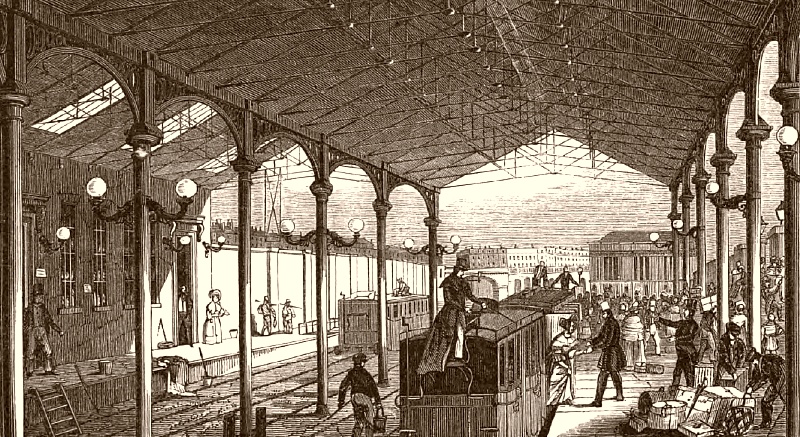I am in London at the moment, a city that Anne Brontë visited in July 1848, in the company of her sister Charlotte. It was the only occasion that Anne ever travelled outside of Yorkshire, and she quickly fell in love with the city’s magnificent architecture and the beautiful music that she heard on a visit to the opera house in Covent Garden.
This was the occasion on which Anne and Charlotte abandoned their facade of Acton and Currer Bell to disprove the suggestion, spread by Anne and Emily’s unscrupulous publisher Thomas Cautley Newby, that the Bell brothers were one and the same person. It was a stressful time for the shy sisters, but it led to some of the happiest days of Anne Brontë’s all too short life.

The sights and sounds of London were far removed from those she knew so well at Haworth, although that too was a place she loved. I also visited Haworth this week to undertake further research on Aunt Branwell, a pivotal figure in the Brontë story. The Parsonage Museum was enchanting as ever, but I also witnessed a delightful scene on the moors that surround the Parsonage, as it is at this time of year that the often bleak moors take on a royally purple hue.
Heather season is starting in Haworth, a time that would have seemed magical to the nature loving Anne and Emily. She looked back fondly at her childhood moors in her poem ‘Memory’, written in 1844. Next week’s blog will look at one particular London building that Anne Brontë visited, but for now I leave you with the joyous, yet at the same time melancholic, ‘Memory’:
Brightly the sun of summer shone
Green fields and waving woods upon
And soft winds wandered by.
Above, a sky of purest blue,
Around, bright flowers of loveliest hue
Allured the gazer’s eye.
But what were all these charms to me
When one sweet breath of memory
Came gently wafting by?
I closed my eyes against the day
And called my willing soul away
From earth and air and sky;
That I might simply fancy there
One little flower – a primrose fair
Just opening into sight.
As in the days of infancy,
An opening primrose seemed to me
A source of strange delight.
Sweet Memory, ever smile on me;
Nature’s chief beauties spring from thee,
O, still thy tribute bring.
Still make the golden crocus shine
Among the flowers the most divine,
The glory of the spring.
Still in the wall-flower’s fragrance dwell,
And hover round the slight blue bell,
My childhood’s darling flower.
Smile on the little daisy still,
The buttercup’s bright goblet fill
With all thy former power.
For ever hang thy dreamy spell
Round mountain star and heatherbell,
And do not pass away
From sparkling frost, or wreathed snow,
And whisper when the wild winds blow
Or rippling waters play.
Is childhood then so all divine?
Or, Memory, is the glory thine
That haloes thus the past?
Not all divine; its pangs of grief
Although perchance their stay be brief,
Are bitter while they last.
Nor is the glory all thine own,
For on our earliest joys alone
That holy light is cast.
With such a ray no spell of thine
Can make our later pleasures shine,
Though long ago they passed.

Really glad you are doing a book on Aunt Branwell! I look forward to it. A rather over looked person in the story. I imagine you had to research Methodism! I have wondered why she was called Aunt Branwell and not Aunt Elizabeth? Perhaps because her stay to care for her ill sister was not seen, at first, as permanent and the habit continued ? It says a lot about both her and Patrick Bronte that Aunt Branwell could cross lances with him” without fear”. That great determination to be herself, always, reminds me of her niece, Emily!
Yes I think there was a lot of Aunt B in Emily – and I think her influence, and the stories she told of Cornwall, can be seen in Wuthering Heights.
Excellent observation